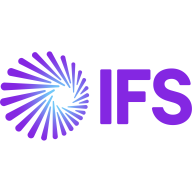

Microsoft Dynamics CRM and IFS Cloud Platform compete in the customer relationship management and enterprise resource planning space. Microsoft Dynamics CRM appears to have the upper hand due to its strong integration with the Microsoft ecosystem and extensive feature set.
Features: Microsoft Dynamics CRM is highly customizable with strong integration capabilities, excellent reporting, and mobile capabilities. IFS Cloud Platform offers strong service management, a user-friendly interface, and robust field service management and ERP capabilities.
Room for Improvement: Microsoft Dynamics CRM requires more user-friendly customization options, better integration, and improvements in mobile experience and support. IFS Cloud Platform needs better configuration ease, error messaging, and integration documentation while also enhancing mobile compatibility and reporting features.
Ease of Deployment and Customer Service: Microsoft Dynamics CRM is primarily deployed on public clouds, offering reliable support but needing faster response times. IFS Cloud Platform provides hybrid and on-premises deployment flexibility but has complexity in setup and support.
Pricing and ROI: Microsoft Dynamics CRM is expensive for smaller businesses but offers strong ROI with its feature set. IFS Cloud Platform is similarly costly, with competitive pricing models seen as valuable for larger companies, offering significant ROI through enhanced processes.
I recommend that those considering Microsoft Dynamics CRM conduct an ROI exercise to determine scalability and complex business needs because it is indeed a fantastic tool, especially if Microsoft can provide a better commercial model, which can significantly impact cost-effectiveness.
I would rate customer support as ten out of ten.
Microsoft is supportive of any problems they encounter.
While the support operates within their standard SLA, it can be difficult to speak directly with someone over the phone.
IFS Cloud Platform has standard functionalities that follow the standard supply chain management processes, and it is easy to customize or configure.
Microsoft Dynamics CRM is scalable; it's easy to scale, but when customizations become extensive, maintainability can become challenging.
I would give it a ten out of ten for scalability.
Microsoft Dynamics CRM is highly scalable, rated at ten, even fifteen out of ten.
Now, with the drastic developments especially in the cloud applications known as Arena on IFS Cloud Platform, it has improved tremendously.
There have been instances where issues with Microsoft Azure have affected Dynamics due to the infrastructure layer.
I would rate it ten out of ten.
They are working on IFS AI, but we have not explored much into that yet, and if they want to keep their competitive edge, that is an area they need to concentrate on.
There is not much available online, and the documentation availability is on the lower side compared to other products, especially Maximo.
More use-case-oriented material should be provided to help users and implementers learn how to do more, faster.
Microsoft Dynamics CRM doesn't provide solutions that allow you to transform easily if you have a heterogeneous mix of technologies or if your contact center is on analog and you try to digitize it.
Microsoft Dynamics CRM needs improvement in simplifying the setup and configuration process, which can be relatively complex when we want all features to work properly.
Although it is a good tool, it is costly.
The pricing of Microsoft Dynamics CRM can be complex due to Microsoft's complicated licensing model.
Microsoft Dynamics CRM costs about $110 to $115 per user per month, following a recent price increase.
The cloud feature in IFS Cloud Platform is predominantly valuable, especially the enterprise asset management module, which IFS has very good business into, along with strong finance, project management, and supply chain management modules.
There are fewer fields on the user screen compared to other products.
The backend storage integrates seamlessly with OneDrive, and the solution offers robust security features, including Azure integration, two-factor authentication (2FA), and comprehensive audit trails.
The most valuable feature of Microsoft Dynamics CRM is its integration with Outlook and other Microsoft products like Microsoft 365, which includes emails, Teams, and SharePoint.
With the Microsoft suite of products, they work together logically and well.
| Product | Market Share (%) |
|---|---|
| Microsoft Dynamics CRM | 4.4% |
| IFS Cloud Platform | 0.8% |
| Other | 94.8% |


| Company Size | Count |
|---|---|
| Small Business | 14 |
| Midsize Enterprise | 9 |
| Large Enterprise | 10 |
| Company Size | Count |
|---|---|
| Small Business | 41 |
| Midsize Enterprise | 22 |
| Large Enterprise | 19 |
IFS is the world’s leading provider of Industrial AI and enterprise software for hardcore businesses that make, service, and power our planet. Our technology enables businesses which manufacture goods, maintain complex assets, and manage service-focused operations to unlock the transformative power of Industrial AI™ to enhance productivity, efficiency, and sustainability. Industrial AI is IFS.ai.
IFS Cloud is a fully composable AI-powered platform, designed for ultimate flexibility and adaptability to our customers’ specific requirements and business evolution. It spans the needs of Enterprise Resource Planning (ERP), Enterprise Asset Management (EAM), Supply Chain Management (SCM), Information Technology Service Management (ITSM), and Field Service Management (FSM). IFS technology leverages AI, machine learning, real-time data and analytics to empower our customers to make informed strategic decisions and excel at their Moment of Service™.
Microsoft Dynamics CRM is a comprehensive customer relationship management solution that helps businesses streamline their sales, marketing, and customer service processes. With its user-friendly interface and powerful features, it enables organizations to effectively manage their customer interactions and drive business growth.
One of the key features of Microsoft Dynamics CRM is its sales automation capabilities. It allows sales teams to track leads, manage opportunities, and close deals more efficiently. The solution provides a centralized platform for managing customer information, enabling sales representatives to access real-time data and make informed decisions. It also offers tools for forecasting, pipeline management, and sales analytics, helping businesses optimize their sales processes and drive revenue growth.
In addition to sales automation, Microsoft Dynamics CRM offers robust marketing automation features. It enables marketers to create and execute targeted marketing campaigns, track campaign performance, and generate actionable insights. The solution provides tools for lead management, email marketing, social media integration, and customer segmentation, allowing businesses to engage with their customers effectively and drive marketing ROI.
Furthermore, Microsoft Dynamics CRM helps organizations deliver exceptional customer service. It provides a unified view of customer interactions, enabling customer service representatives to deliver personalized and timely support. The solution offers case management, a knowledge base, and self-service portal capabilities, empowering customers to find answers to their queries and resolve issues on their own. It also provides tools for service analytics and reporting, helping businesses identify areas for improvement and enhance customer satisfaction.
We monitor all CRM reviews to prevent fraudulent reviews and keep review quality high. We do not post reviews by company employees or direct competitors. We validate each review for authenticity via cross-reference with LinkedIn, and personal follow-up with the reviewer when necessary.